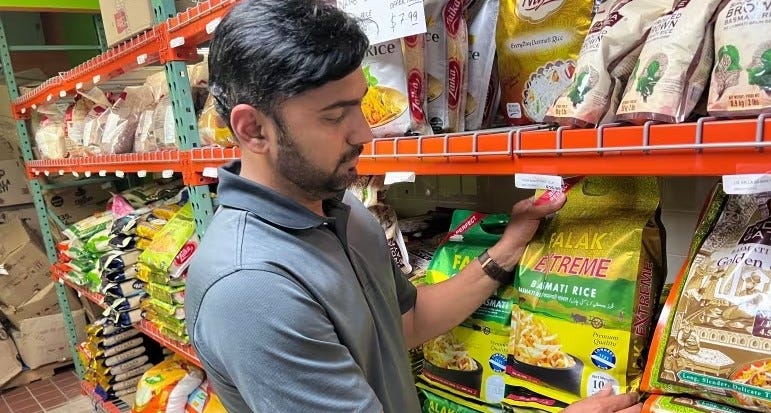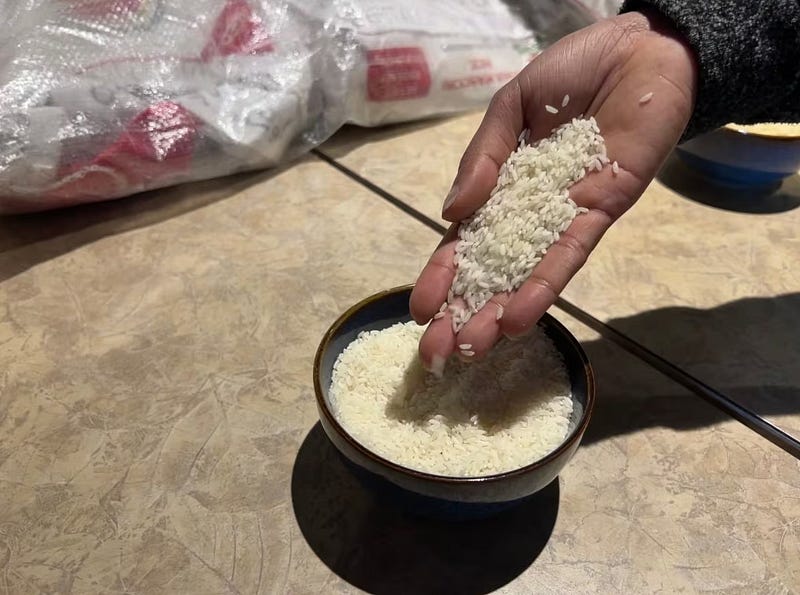India’s Ban on Rice Exports Hits South Asian Businesses in Windsor

Windsor’s South Asian supermarkets and restaurants are facing a challenging situation due to India’s recent ban on rice exports, which has left them without a key ingredient needed for many traditional recipes. While basmati rice remains unaffected, the ban on several types of non-basmati rice was imposed in response to shortages caused by adverse weather conditions, including heavy rains and drought, in rice-producing regions of India. As a result, prices of non-basmati rice have skyrocketed within India, prompting the government to prioritize domestic supply.
The impact of the ban has been significant for the local South Asian community in Windsor. Parimal Parikh, the owner of Namaste Indian Supermarket on Walker Road, witnessed a surge of customers rushing to the store to stock up on rice after the ban was announced. The types of rice affected by the ban are particularly popular among the population from South India. Parikh advised his customers not to hoard rice excessively, as doing so would deprive others of this essential staple.

However, the panic buying continued, leading to shortages of non-basmati rice in Windsor’s stores. Parikh expects to receive more stock eventually, but anticipates that prices will rise due to the increased demand and limited supply. He plans to implement measures to regulate customer purchases in order to ensure fair distribution.
Similarly, at Nawab’s Indian Cuisine on Wyandotte West, owner Sowmya Reddy is also facing scarcity issues, with only a few bags of Sona Masuri rice left in stock. Sona Masuri rice is a staple for individuals hailing from the southern part of India, and the ban is likely to impact their daily meals significantly. Reddy fears that if the rice supply is not restored soon, she will have to remove around 14 items from her restaurant’s menu, affecting her business and her customers.
The ban’s consequences extend beyond Windsor, as food economist Mike von Massow at the University of Guelph suggests. While Canada imports more than half a billion dollars’ worth of rice annually, only about 20% of that comes from India, and a small portion of that is the banned lower-quality rice varieties. Nevertheless, specialty stores catering to specific tastes may experience price increases, but overall, Canadian consumers who are open to substituting rice varieties should be able to mitigate the impact.
The duration of the ban’s effects remains uncertain, as it depends on the return of Indian rice production to more stable levels. Extreme weather events have become more frequent and intense, making it challenging to predict when the market will normalize. Von Massow believes that this ban is not a short-term measure by the Indian government, as such restrictions are not typically imposed for brief periods.

In conclusion, India’s ban on non-basmati rice exports has caused significant disruptions in Windsor’s South Asian community, affecting both businesses and individuals heavily reliant on these rice varieties. The situation remains uncertain until Indian rice production stabilizes, and customers in Windsor may need to adapt their recipes and menus to accommodate the temporary shortage.